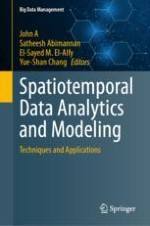2024 | OriginalPaper | Buchkapitel
9. Spatio-Temporal Supply Chains and E-Commerce
verfasst von : S. Vijayalakshmi, Sathya Shanmugasundaram, P. Padmanabhan, S. Jerald Nirmal Kumar
Erschienen in: Spatiotemporal Data Analytics and Modeling
Verlag: Springer Nature Singapore
Aktivieren Sie unsere intelligente Suche, um passende Fachinhalte oder Patente zu finden.
Wählen Sie Textabschnitte aus um mit Künstlicher Intelligenz passenden Patente zu finden. powered by
Markieren Sie Textabschnitte, um KI-gestützt weitere passende Inhalte zu finden. powered by
